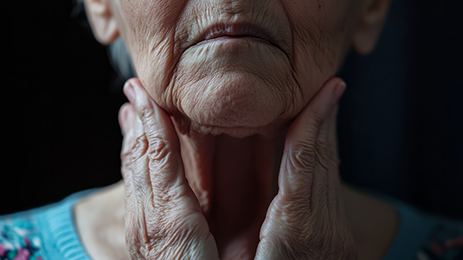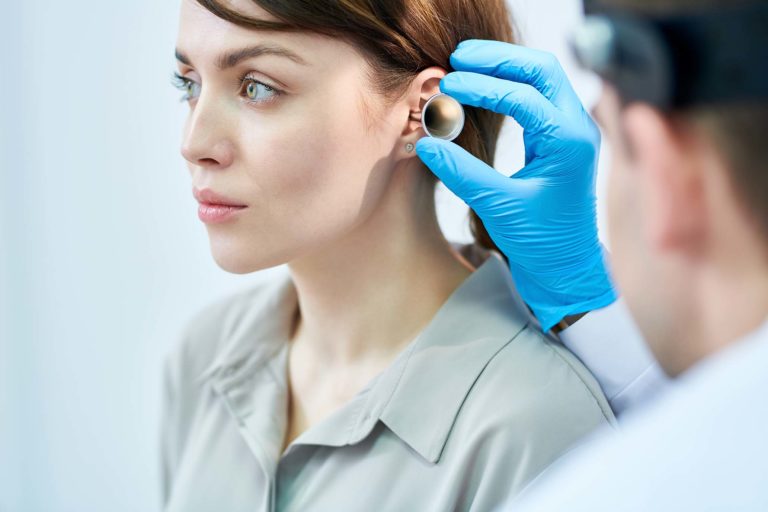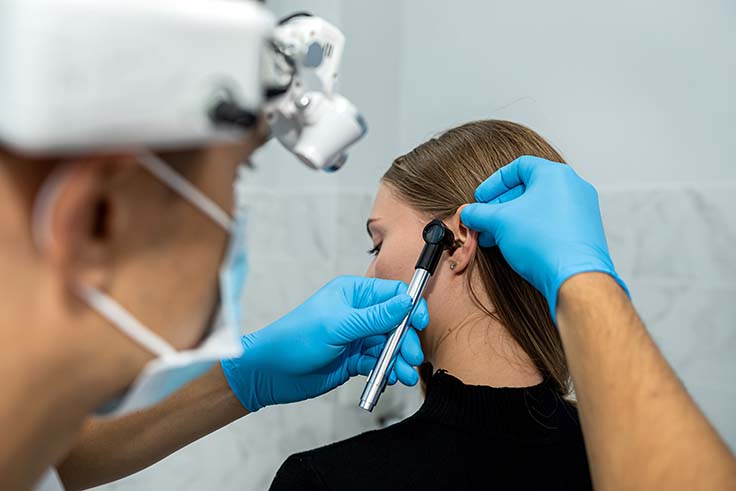Dr Chin Peers into Thyroid Nodules: Symptoms, Causes, and Treatment Options
Discover essential information about thyroid nodules, including symptoms, causes, and effective treatments. Get informed on our blog today!
Thyroid nodules are lumps growing in the thyroid gland at the base of the neck, common in many adults. They can indicate thyroid problems or cancer, and early detection and treatment are crucial for patient safety. Thyroid nodules can vary in size, shape, and function, and some may produce excessive hormone. Whether a nodule is alone or part of a larger issue like multinodular goiter, seeing an ENT or thyroid specialist is essential. Understanding thyroid nodule symptoms, causes, and treatment options helps patients and doctors make informed decisions about care.
What Are the Symptoms of Thyroid Nodules?
Most thyroid nodules do not cause symptoms. They are often found by chance during regular check-ups or imaging tests. However, some nodules might show clear signs:
- A noticeable bump in the neck
- Trouble swallowing or breathing
- A change in voice or hoarseness
- Pain or discomfort in the neck
- Signs of hyperthyroidism or hypothyroidism in some cases
Knowing the symptoms of thyroid nodules is key. It helps in assessing the situation and getting timely treatment.
What Causes Thyroid Nodules?
The reasons for thyroid nodules can be different. Some factors may include:
- Not enough iodine
- Ongoing inflammation (like Hashimoto’s thyroiditis)
- Growth of normal thyroid tissue (colloid nodules)
- Cysts on the thyroid
- Thyroid cancer
Types of Thyroid Nodules
- Benign thyroid nodules: Most are non-cancerous. They often need monitoring.
- Cancerous thyroid nodules: These are less common, but early detection is very important.
- Complex thyroid nodules: These contain both solid parts and cysts.
- Cold thyroid nodules: These do not make thyroid hormone and can be concerning.
- Hot thyroid nodules: These produce too much thyroid hormone and are usually benign.
- Hypoechoic thyroid nodules: These look darker on ultrasound and may need more checks.
How Are Thyroid Nodules Diagnosed?
ENT doctors usually use several methods to check patients. They do a clinical assessment and also use diagnostic tools.
Thyroid Nodule Ultrasound
An important imaging method to check the size, shape, and features of nodules.
Thyroid Biopsy
A thyroid fine needle aspiration (FNA) is usually done with the help of ultrasound. This procedure collects tissue samples for analysis.
Thyroid Function Tests
TSH levels are checked to assess hormone production impact on thyroid nodules, a clear link between the two, distinguishing functional and non-functional nodules.
Treatment Options for Thyroid Nodules
The care of thyroid nodules depends on what the doctors find during diagnosis.
- Watch and check back for small, non-threatening nodules.
- Remove thyroid nodules or have thyroid surgery for nodules that are worrying or causing symptoms.
- Use radioactive iodine treatment for some hot thyroid nodules.
- Keep an eye on changes in size or looks, especially for larger thyroid nodules.
Long-Term Follow-Up
Regular follow-up for thyroid nodules is crucial when surgery isn’t necessary, involving ultrasounds and medical check-ups. Understanding the type of thyroid nodule helps ENT specialists create the best treatment plan for their patients, whether it’s a solitary or multinodular goiter.








